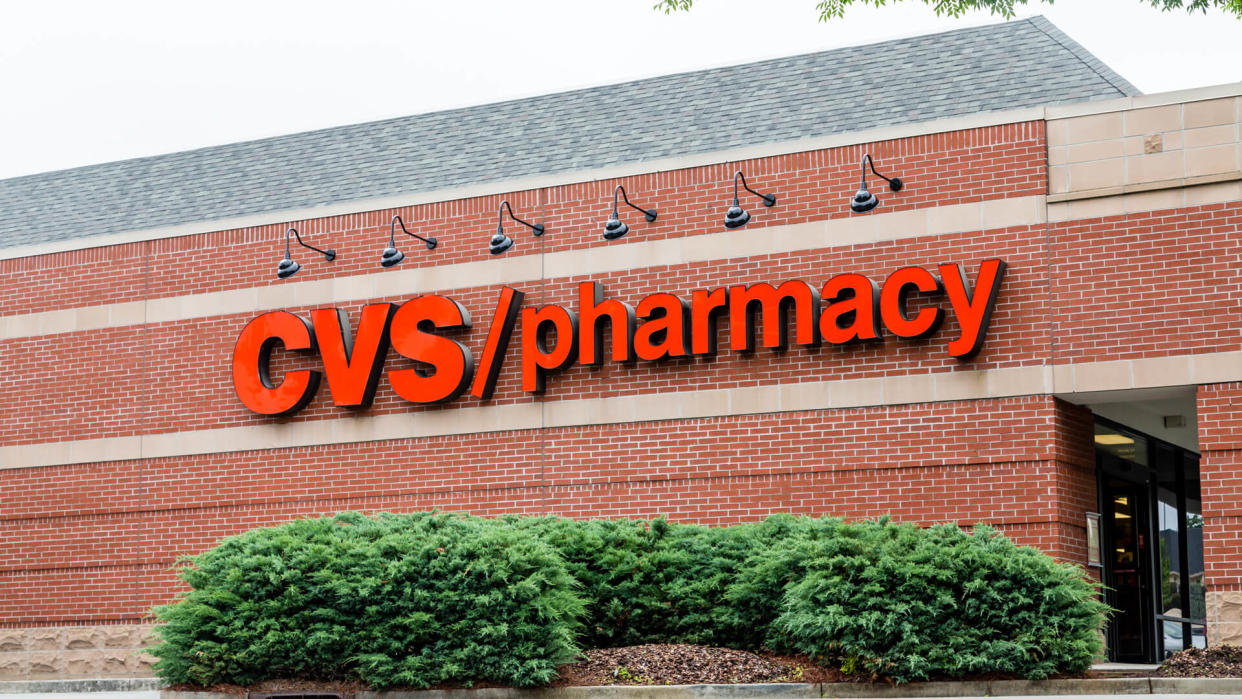How Much Is CVS Worth?

Pharmacy retailer CVS offers everything from COVID-19 vaccines and beauty products to home cleaning products and passport photos. The company has tried to differentiate itself from other drugstores with an emphasis on health and medical care. Here’s a breakdown of other factors that can help investors decide whether to buy this stock.
What CVS Is Worth | |
|---|---|
CVS Share Price, 52-Week Range | $65.18 – $96.57 |
2020 Revenue | $268.406 Billion |
2020 Profit | $7.179 Billion |
GOBankingRates’ Evaluation of | $211.431 Billion |
All information on 52-week range accurate as of Nov. 8, 2021. | |
Headquarters | Woonsocket, Rhode Island |
Year Founded | 1963 |
CEO Karen S. Lynch’s Salary | $1.2 Million |
CVS Market Cap: $123.769 Billion
When investors want to know the size of the company, they look at market capitalization, or the total dollar worth of the company’s stock. To find this number, they multiply the number of outstanding shares with the current market price of one share. With roughly 1.320 billion shares outstanding and a current share price of $93.76, CVS’ market cap is $123.769 billion.
CVS Net Worth: $211.431 Billion
Although market cap gives you a sense of what the market values a company at, the number is based on hundreds of factors, big and small, that boil down to market volatility.
The GOBankingRates Evaluation of a company’s net worth, however, considers figures like assets and revenue, using a company’s last three fiscal year income statements and balance sheets to draw a conclusion of its value.
Based on CVS’s revenue and profits from the last three years, CVS is worth over $211 billion.
CVS Expands Beyond Pharmacies
CVS’s sheer volume of prescription revenue alone makes it the largest pharmacy in the U.S. as of March 2021, thanks to its merger with Aetna and its agreement with Anthem Inc. to provide services, including prescription fulfillment, for pharmacy benefits company IngenioRx.
CVS, like other pharmacies, has received a major boost since the pandemic began, first with COVID-19 tests and then with vaccines. In fact, it announced in September that it would hire 25,000 new workers to meet flu and COVID-19 vaccine demand. In just the third-quarter of 2021, CVS administered more than 8 million COVID-19 tests and over 11 million vaccine doses, according to its earnings release, and is poised for a burst of new vaccine business following the emergency use authorization for childrens’ COVID vaccines as well as the boosters already being administered to some previously vaccinated individuals.
The company also expanded its medical services with the launch of Aetna Virtual Primary Care, which augments in-person physician visits at MinuteClinic and HealthHUB locations with virtual appointments.
CVS outperformed analysts’ projections in the third quarter of 2021, easily beating earnings per share and revenue forecasts. Total revenue grew 10% compared to the same quarter a year ago, to $73.8 billion. Adjusted earnings per share were $1.97, an 18.7% increase compared to the previous year. In its full-year guidance for 2021, CVS increased its earnings-per-share guidance range from $7.70-$$7.80 to $7.90-$8. The positive report drove the stock’s Monday, Nov. 8 closing price to $93.76, its highest closing price since May 2016.
CVS History and Investors
CVS stands for Consumer Value Stores, the name it started using a year after its 1963 founding by brothers Stanley and Sidney Goldstein and their partner Ralph Hoagland. One of the company’s notable milestones occurred in 2001, when it became first national pharmacy retailer to offer its customers a loyalty program.
CVS headquarters, located in Rhode Island, oversees more than 9,900 locations in 49 states, the District of Columbia and Puerto Rico, according to the company’s website. The company’s investors include large financial service groups such as The Vanguard Group; FMR LLC; Blackrock Inc.; and State Street Corporation.
Karen S. Lynch was introduced as CVS’ new president and CEO in February. According to documents filed with the Securities and Exchange Commission, Lynch’s 2020 base salary was $1.2 million. She also received a $2.538 million annual cash incentive and a $7.5 million equity award.
Sean Dennison contributed to the reporting for this article.
Methodology: The GOBankingRates Evaluation assesses a company’s net worth based on the company’s total assets, total liabilities, and revenue and net income from the last three years. Base value is established by subtracting total liabilities from total assets from the company’s last full fiscal year. Income value is established by taking the average of the revenue from the last three full fiscal years, 10 times the average of the net profits from the last three full fiscal years, and then calculating the average of those two figures. The final GOBankingRates Evaluation number is the sum of the base value and the income value.
Data is accurate as of Nov. 8, 2021, and subject to change.
This article originally appeared on GOBankingRates.com: How Much Is CVS Worth?
